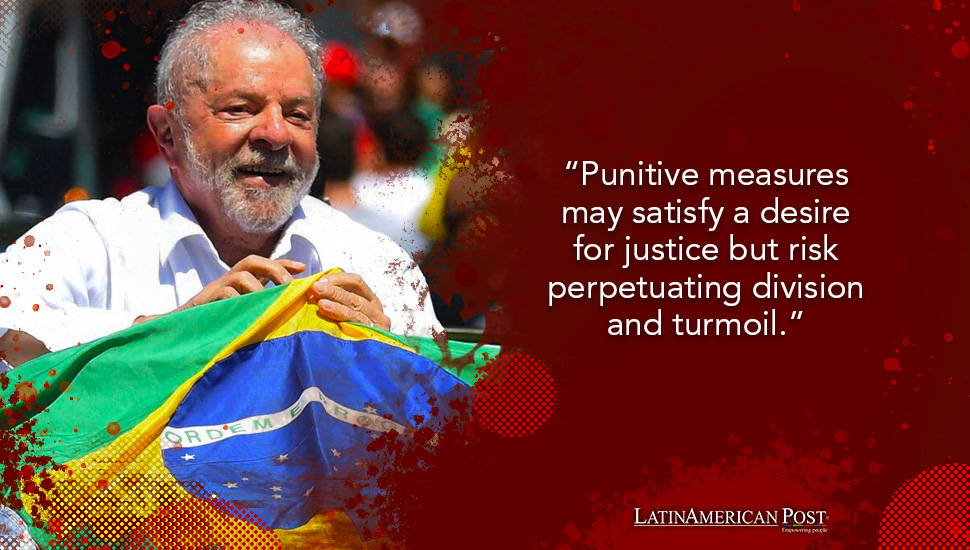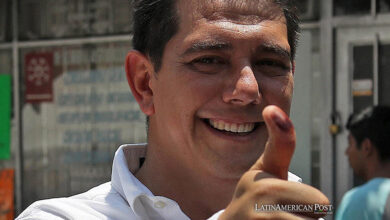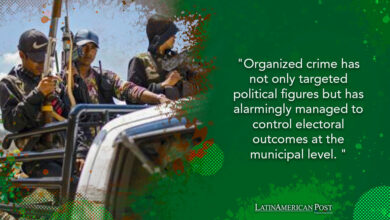The Peril of Punitive Responses as Brazil Marks First Anniversary of Jan. 8 Attack on Democracy

A Reflection on Recent Challenges
In a recent commemorative event in Brazil, the country’s leaders celebrated their democratic system, which had withstood a right-wing crowd’s invasion and vandalism of its Supreme Court, Congress, and presidential palace. The 2023 incident occurred in protest against a contested election result. Under the banner “Democracy Unshaken,” Brazil’s top officials, led by President Luiz Inacio Lula da Silva, gathered to remember when their capital, Brasilia, was besieged by demonstrators demanding a military coup.
While it is essential to recognize the resilience of democratic institutions, there is a crucial lesson to be learned from this event: the dangers of responding to political unrest with punitive measures. President Lula’s call for exemplary punishment and a resounding “no forgiveness” stance should raise concerns about the long-term consequences of such an approach.
Brazil’s democracy, like many others worldwide, has faced significant challenges. Political polarization, election disputes, and protests are not unique to the country. However, the response to these challenges sets the course for a nation’s democratic health. It is here that we must tread carefully.
The Case for Restorative Justice
Seeking punishment for those involved in the riots is a natural response to criminal actions. However, it is essential to consider the broader implications. While satisfying an immediate desire for justice, Punitive measures may deepen divisions and further polarize society. Instead, we should explore the power of restorative justice.
Restorative justice focuses on repairing the harm caused by wrongdoing. It emphasizes dialogue, understanding, and rehabilitation over punishment. By engaging both victims and offenders in healing and reconciliation, restorative justice offers an alternative path to address the grievances that fueled the protests.
President Lula’s statement that “forgiveness would sound like impunity” reflects a prevailing sentiment among leaders who fear that leniency might encourage future acts of dissent. However, this perspective risks perpetuating a cycle of conflict. Harsh punishments may serve as a rallying point for those who feel marginalized, strengthening their resolve and deepening their commitment to opposing the government.
Unintended Consequences of Punitive Measures
Furthermore, punitive measures can have unintended consequences. They may lead to the radicalization of individuals who perceive themselves as victims of an unjust system. Rather than discouraging dissent, it could drive it underground, making it harder to address and resolve.
Brazil’s recent experience is typical. We need only look at other nations’ responses to political unrest to see the potential dangers of punitive approaches. The attack on the U.S. Capitol in 2021, following President Donald Trump’s election loss, resulted in criminal charges against many participants. While accountability is essential, the process has fueled ongoing political divisions and exacerbated polarization in the United States.
Accountability and Reconciliation
The path forward for Brazil and any country facing similar challenges should involve a combination of accountability and reconciliation. Restorative justice programs, truth and reconciliation commissions, and inclusive dialogue can help bridge divides and heal fractured societies.
Leaders play a crucial role in shaping the response to political unrest. While it may be tempting to take a hardline stance, authentic leadership involves looking beyond the immediate moment and considering the long-term consequences of one’s actions. Leaders must prioritize the unity and healing of their nations over short-term political gains.
Also read: Brazil’s Battle Against Wildcat Gold Mining Threatening the Amazon
Brazil’s celebration of its resilient democracy is well-deserved, but it also serves as a reminder of the importance of thoughtful and measured responses to political unrest. Punitive measures may satisfy a desire for justice but risk perpetuating division and turmoil. The path to a more robust democracy lies in restorative justice, reconciliation, and inclusive dialogue. Only through these means can nations hope to heal their wounds and move forward together.





